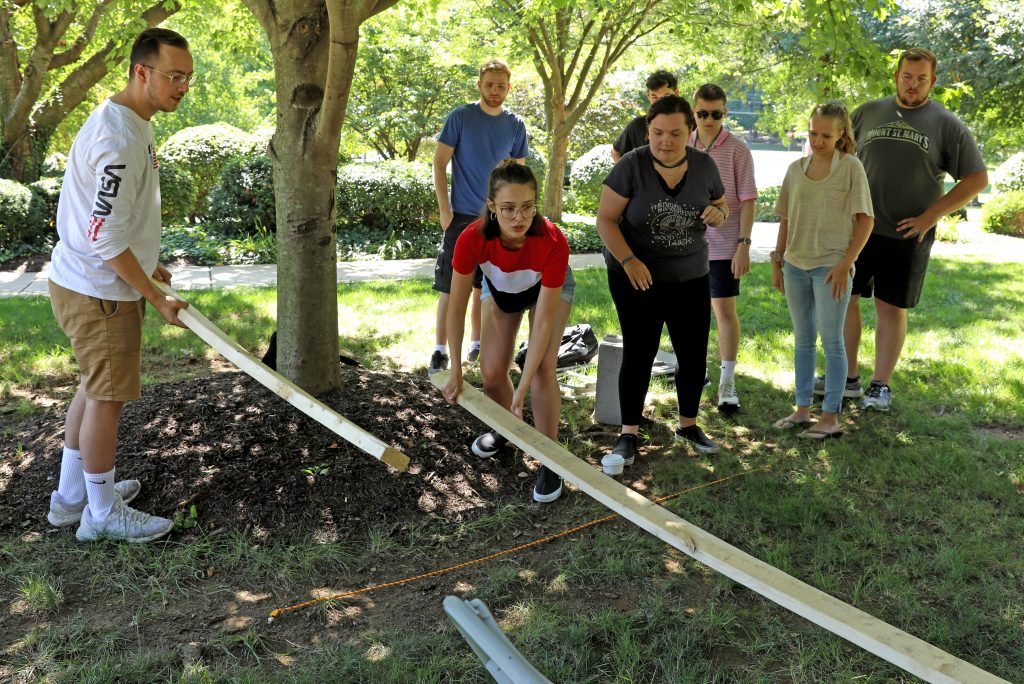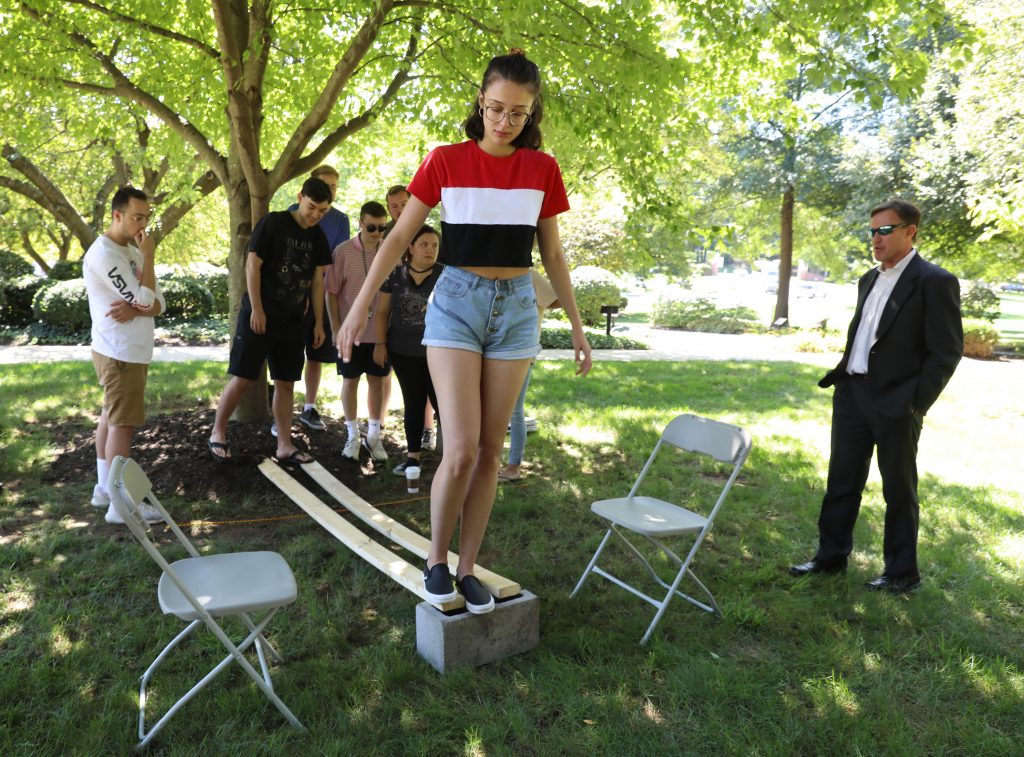Professor John Weaver teaches in York College’s Intelligence Analysis Program. Recently, he ran a leadership reaction course for his Advanced Intelligence Analysis class. In preparation for the semester’s weekly group exercises for IA 410, students had a chance to apply critical thinking skills to solve problems through planning, coordinating and communicating with one another as they ran through this course.
The advanced intelligence analysis class is a capstone course that looks to synthesize what students have learned throughout the intelligence analysis major and minor. Each Tuesday, students receive a refresher session on a structured analytic technique (SAT) and on Thursdays, two student leaders (rotated throughout the semester) implement the SAT by analyzing data provided by the professor on a country or non-state actor that could be seen as a threat to the United States. The class has 55 minutes to complete the assessment and build a presentation, 15 minutes to brief, and is critiqued for the last five minutes.

To prepare the students, Dr. Weaver runs the class through a leadership reaction course (LRC) the first week of the semester. Students are subsequently broken down into two groups and each group selects a leader. The leader receives a briefing, is provided with limited resources, can ask questions, has five minutes to plan with the group, and then works with their people to complete the timed course essentially moving the team from one side of the course to the other as quickly and safely as possible. At the end, students provide feedback on what they did well and what they could do better in the future.

The intent is for students to understand how important leadership is (when in charge, take charge). They also realize quickly that no single person can accomplish the task and how to leverage the strengths of each person. Students quickly understand the importance of good planning, the need to ask the right questions, communication, coordination, and ultimately how good collaboration can lead to success. The LRC helps the students prepare for the stress that they will feel during the Thursday scenarios; students grow by discussing what went well and what they could improve upon the next time.
